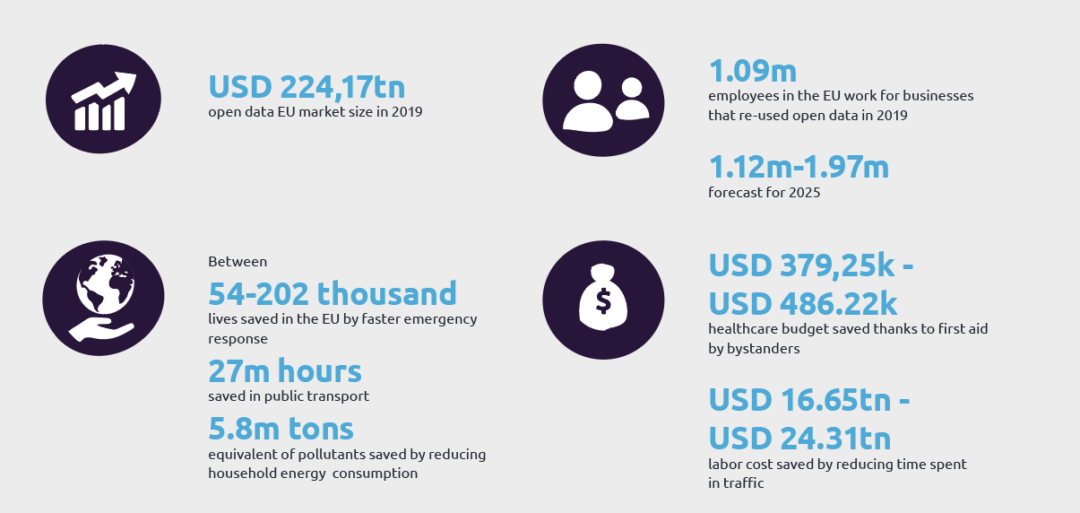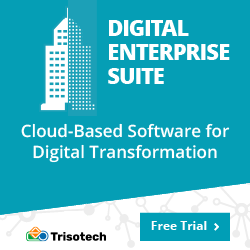Unleashing the potential of open data for government and business
Blog: Capgemini CTO Blog
You benefit from it every day, whether in business or as a citizen, but you likely don’t even know you’re using it. Open data is data that anyone can freely re-use for any purpose offered by governments back to their citizens. Its potential economic impact is massive but still largely untapped. Further, the European Union commits to ensuring you can leverage its potential. The European Union is a unique economic and political union between 27 countries. What began as an economic union in 1958 has evolved into an organization spanning policy areas, from the environment to health, and from justice to migration. Its main economic engine is the single market that enables goods, services, money, and people to move freely. The EU aims to develop this principle in other areas like energy, knowledge, and data to ensure that Europeans can draw multilateral and optimized benefits.
The commitment to facilitate more and better sharing of data starts from “open data”: Data that anyone has the right to re-use, free of confidential and personal information, most often created by government operations and released to their citizens and businesses at no cost.
Innovating from open data
Open data is not innovative per se. Instead, it enables efficiency and innovation of products and services that re-use it. Capgemini Invent’s “Economic Impact of Open Data” study has described the financial and non-financial positive impact of this resource, directly and indirectly extensively. It spans from the creation of new enterprises and jobs to people’s time and lives saved, to an entire market depending on it, estimated between 199 (baseline scenario) and 334 (high growth scenario) billion EUR in Europe by 2025.

Source: Capgemini Invent’s report
In 2003, with the first of a series of three “Public Sector Information Directives,” the EU made publishing open data a legal mandate. What came next was a series of “European Data Portal” projects – soon rebranded as “data.europa.eu.” Capgemini Invent in the Netherlands has since led the consortium that implements the EU’s open data strategy. The program was recently extended through 2027, continuing to offer a single, coherent core component of the public sector data infrastructure to the Union’s citizens.
The program offers three key pillars:
- Access to public data resources across Europe via a single point of contact is the portal itself, offering over 1 million datasets across 36 countries, 6 EU institutions, and 79 other EU bodies and agencies.
- Support for EU institutions and Member States by facilitating communities of practice around national open data portals and policy owners, training and consultancy. Why? Well, to improve, sustain, and document publishing practices.
- Evidence of socio-economic benefits concerning re-using public data resources and various stimuli fosters and showcases uptake and value creation.
How does it work? The three pillars support creating and improving processes, products, and services, as well as re-using public data resources to create economic, societal, political, and environmental impact. Of particular relevance are the project’s yearly assessments of open data maturity in Europe and the research around socio-economic implications of open and shared data. Today, maturity and expectations on data quality, interoperability, and impact creation have evolved. Europe is moving towards a common European “data space” where data re-use – whether in the open or in controlled environments – is enabled and governed for compliance, security, and viability. Therefore, it facilitates even more innovation, equality, and prosperity.
Similarly, the concentration on exploiting open data and data sharing, in general, is becoming the focus, and not just from governments to citizens, but between businesses, in ethical, technologically sound, and commercially viable ways. Capgemini Invent once again supports the EU along this new venture, leading the “Support Centre for Data Sharing”: The precursor of more legislation and an endorsement that the Union will provide to European business over the next many years.
INNOVATION TAKEAWAYS
Sharing = business
No, data is not “the new oil.” Oil is finite and can’t be duplicated or shared. But data is replicable and shareable. Open data and data sharing are worth considering in the continuous transformation of your business, whether you’re a consumer of it or a provider.
Discover first
If you don’t know what data you have, you can’t use it. Before addressing key data issues such as quality or interoperability, the EU’s focus has been on making data discoverable. Knowledge about what data is available – and stewarding it – is the critical step towards realizing value.
Focus on impact
Value and data quality rely on how consumers can use it. It’s not about how “good” it is in technical terms such as correctness, completeness, and update frequency. Undoubtedly, whether you work in the public or private sector, move beyond traditional metrics by which data products and services are evaluated and start thinking more along the lines of the impact data can create.
Interesting read?
Data-powered Innovation Review | Wave 2 features 21 such powerful stories from our leading technology partners and global top experts, covering fields like data for a better society, autonomous systems, data mesh architecture, creative AI, and data sharing ecosystems which will inspire you and activate your innovation muscles. Download your copy here!
Authors:

Esther is a Senior Manager for data strategy and data policy at Capgemini Invent. In her work for the European Union’s Data.Europa.eu and Support Center for Data Sharing, she and her team aim at increasing the impact of data via trusted collaborations. By engaging with public and private organizations and academia, she researches and encourages successful data sharing for a common European data space and joint decision and policy-making in the EU and globally.

Gianfranco is an experienced technology strategists and programme manager, an open and shared data advocate and a data scientist who brings together an interdisciplinary skill set with a creative approach and has a unique profile between technology, strategy and advocacy. He joined Capgemini Invent in the Netherlands to lead the team responsible for data-related strategy and technology transformation in international public sector organisations.
Leave a Comment
You must be logged in to post a comment.








